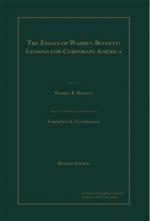
|
| Name: _________________________ | Period: ___________________ |
This quiz consists of 5 multiple choice and 5 short answer questions through Accounting Policy and Tax Matters.
Multiple Choice Questions
1. A bond is _______ with regular payment of interest and repayment of principle.
(a) Nothing.
(b) Debt.
(c) A loan.
(d) A promise.
2. ________ cannot outperform business indefinitely because earnings on stock investments were reduced by the amount of transaction and investment management costs.
(a) Holdings.
(b) Stocks.
(c) Treasury bills.
(d) Bonds.
3. The partners considered a lesser interest if the ________ price was less than what it would be for 100%.
(a) Pro-management.
(b) Pro-rate.
(c) Pro-rata.
(d) Pro-biotic.
4. What is NOT one of the three excuses often given by an overpaying buyer, according to the book?
(a) Buyer's stock is undervalued.
(b) The buyer must grow.
(c) Will be worth more in the future.
(d) Will be worth less in the future.
5. _________ was spurious, to Buffett, compared to depreciation charges for deteriorating assets.
(a) Annual reporting.
(b) Acquisition investment.
(c) Stock market value.
(d) Amortization.
Short Answer Questions
1. The common stock par value was reduced to _________, according to the book.
2. Buffett wondered that if _______ were not calculated through earnings, how could they be determined.
3. Buffett noted that a CEO had no direct ______ or clear standards of performance, making even under performing ones able to continue working.
4. Berkshire Hathaway's insurance companies maintained how many permanent common stock holdings?
5. Buffett did not expand, borrow, or sell unless Berkshire received as much _________ as it gave.
|
This section contains 221 words (approx. 1 page at 300 words per page) |

|




